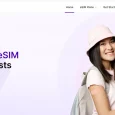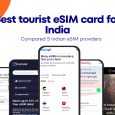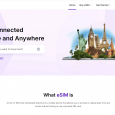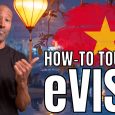Introduction
Vietnam is a beautiful country in Southeast Asia that attracts millions of tourists every year. Obtaining a visa to enter the country can be a challenge, but there are some exceptions. In this article, we’ll explore the Vietnam visa exemption policy, who qualifies, and how to take advantage of it.
What is Vietnam Visa Exemption?
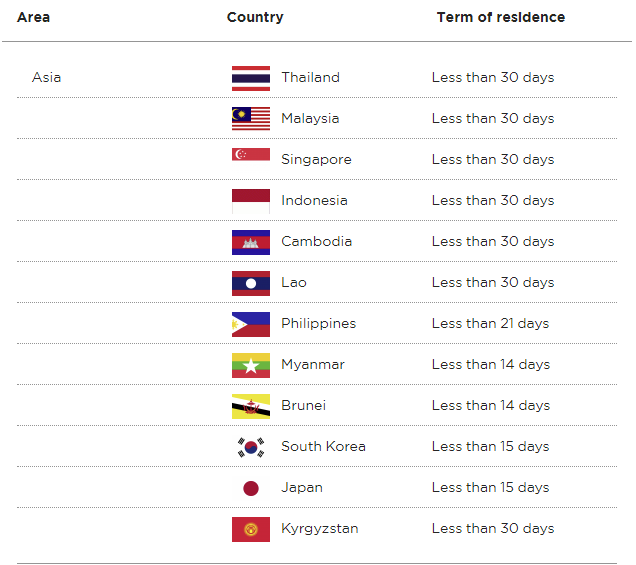
Vietnam visa exemption is a policy that allows citizens from certain countries to enter Vietnam without a visa for a specific period. The period can vary depending on the nationality, purpose of visit, and other factors. This policy aims to promote tourism and facilitate business and cultural exchange between Vietnam and other countries.
Who Qualifies for Vietnam Visa Exemption?
Not all nationalities qualify for Vietnam visa exemption. Currently, there are 24 countries that have a unilateral visa-free agreement with Vietnam, and 13 countries that have a bilateral visa exemption agreement. Here’s a breakdown:
Unilateral Visa-Free Agreement
- Citizens of these countries can stay in Vietnam without a visa for a specific period:
- Belarus – up to 15 days
- Denmark, Finland, Japan, Norway, Russia, South Korea, Sweden – up to 15 days (each entry, with at least 30 days in between entries)
- Cambodia, Indonesia, Kyrgyzstan, Laos, Malaysia, Singapore, Thailand – up to 30 days
- Brunei, Myanmar – up to 14 days
- Philippines – up to 21 days
Bilateral Visa Exemption Agreement
- Citizens of these countries can stay in Vietnam without a visa for a specific period:
- Chile – up to 90 days
- Cambodia – up to 30 days
- Indonesia, Kyrgyzstan, Laos, Malaysia, Singapore, Thailand – up to 30 days
- Philippines – up to 30 days
- Belarus, Russia – up to 15 days
It’s important to note that if you’re planning to stay longer than the allowed period or engage in activities that require a visa, you’ll need to obtain a proper visa before entering Vietnam.
Pros and Cons of Vietnam Visa Exemption
Vietnam visa exemption has its advantages and disadvantages depending on your travel plans and preferences. Here are some pros and cons:
Pros:
- Saves time and money: Applying for a visa can be a tedious and expensive process. With visa exemption, you can enter Vietnam without the hassle and extra cost.
- Easy entry: You don’t need to provide many documents or go through an interview to enter Vietnam.
- Quick trip: If you’re planning a short trip to Vietnam, such as a weekend getaway or a business meeting, visa exemption can be a convenient option.
Cons:
- Limited stay: The allowed period for visa exemption is usually shorter than a regular tourist visa, which means you have less time to explore the country.
- No extension: If you want to stay longer than the allowed period, you’ll need to apply for a visa extension, which can be more difficult and time-consuming than getting a regular visa.
- No flexibility: If you’re planning to enter Vietnam multiple times or engage in activities that require a visa, visa exemption may not be the best option for you.
Alternatives to Vietnam Visa Exemption
If you’re not eligible for visa exemption or prefer a longer stay, there are several alternatives to consider:
Tourist Visa
A tourist visa allows you to stay in Vietnam for up to 3 months, with options for single or multiple entries. You’ll need to apply for the visa at a Vietnamese embassy or consulate in your country or online.
Business Visa
A business visa is suitable for those who are traveling to Vietnam for business-related purposes, such as attending meetings, conferences, or signing contracts. You can stay in Vietnam for up to 1 year with multiple entries. You’ll need to provide some documents, such as an invitation letter from a Vietnamese company or organization.
E-Visa
An e-visa is a convenient option for travelers who don’t want to go to an embassy or consulate to apply for a visa. You can apply for an e-visa online and receive it via email. The e-visa allows you to stay in Vietnam for up to 30 days with a single entry.
How to Take Advantage of Vietnam Visa Exemption?
If you’re eligible for visa exemption and want to take advantage of it, here’s what you need to know:
Check your eligibility
Make sure your country is on the list of countries that have a visa exemption agreement with Vietnam. If so, check the allowed period and purpose of visit to ensure they meet your needs.
Prepare your documents
Although you don’t need a visa, you still needto prepare some documents to enter Vietnam. These include:
- A valid passport with at least 6 months remaining validity
- A return ticket or onward travel ticket (if applicable)
- Proof of accommodation in Vietnam (if applicable)
- Sufficient funds to cover your expenses during your stay
Know the rules and restrictions
Make sure you understand the rules and restrictions of visa exemption, such as the allowed period, purpose of visit, and prohibited activities. If you’re unsure, contact the Vietnamese embassy or consulate in your country.
Enter and exit through eligible ports
Make sure you enter and exit Vietnam through eligible ports that allow visa exemption. These include international airports, seaports, and land border gates.
Step by Step Guide to Applying for a Tourist Visa
If you’re not eligible for visa exemption or prefer a longer stay, you can apply for a tourist visa. Here’s a step-by-step guide:
- Gather the required documents: You’ll need a valid passport, a completed application form, a passport-sized photo, and a visa fee.
- Choose your application method: You can apply for a visa in person at a Vietnamese embassy or consulate in your country or online.
- Fill out the application form: The application form requires information about your personal details, travel plans, and purpose of visit. Make sure you fill it out accurately and completely.
- Submit your application: If you’re applying in person, submit your application along with the required documents and fee. If you’re applying online, follow the instructions on the website.
- Wait for processing: Processing time varies depending on the embassy or consulate and the type of visa. It can take from a few days to a few weeks. Check the status of your application regularly.
- Receive your visa: Once your visa is approved, you’ll receive it via mail or email. Make sure you check the details on the visa, such as validity and number of entries.
Compare Vietnam Visa Exemption with Other Countries
Vietnam is not the only country that offers visa exemption or visa-free entry. Here’s a comparison of some popular destinations:
| Country | Allowed Period | Eligible Nationalities |
|---|---|---|
| Thailand | up to 30 days | 64 countries, including USA, UK, Canada, Australia |
| Indonesia | up to 30 days | 169 countries, including Germany, France, Japan, South Korea |
| Malaysia | up to 90 days | 164 countries, including China, India, Russia, Brazil |
| Singapore | up to 90 days | 80 countries, including EU countries, USA, Canada |
| Philippines | up to 30 days | 157 countries, including UK, Australia, Japan, South Korea |
Tips for a Smooth Entry to Vietnam
Here are some tips to make your entry to Vietnam smoother:
- Keep all your documents organized and easily accessible.
- Make sure you have enough cash in Vietnamese dong or US dollars to cover your expenses during your stay.
- Dress appropriately and behave respectfully to avoid any misunderstandings or confrontations.
- Learn some basic Vietnamese phrases to communicate with locals and show your respect for their culture.
Conclusion
Vietnam visa exemption can be a convenient option for travelers who meet the eligibility criteria. However, it’s essential to understand the rules and restrictions, prepare the necessary documents, and enter and exit through eligible ports. If you’re not eligible for visa exemption or prefer a longer stay, you can apply for a tourist visa or consider other alternatives. By following these tips, you can ensure a smooth entry to Vietnam and enjoy all the beauty and diversity that this country has to offer.
